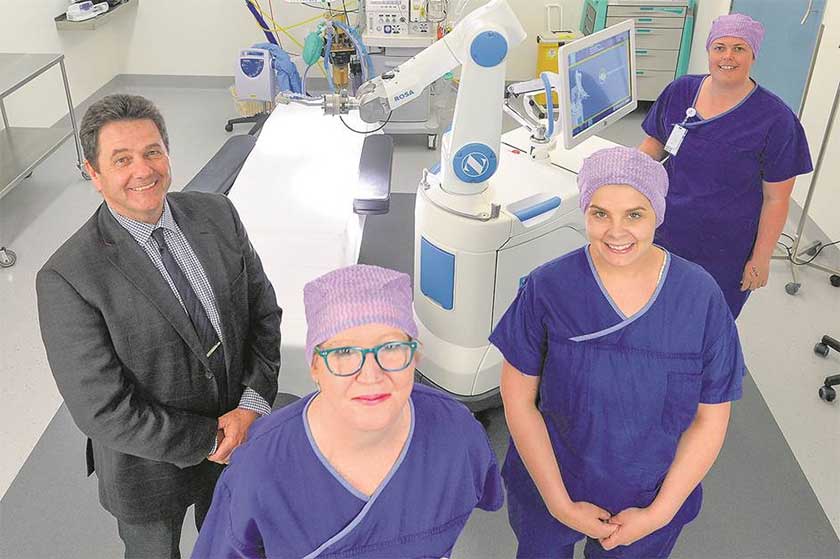First robotic-assisted knee replacement surgery using the new Zimmer Biomet knee robot performed
The first total knee replacement surgery as a part of a clinical trial using Zimmer Biomet’s new knee robot has been successfully completed at St John of God Bendigo Hospital.
29 Oct 2018

29 October 2018
St John of God Bendigo Hospital Chief Executive Officer Trevor Matheson said the organisation took pride in optimising patient care by way of early adoption of new medical developments and welcomed opportunities such as this to encourage the use of new technology.
Zimmer Biomet’s new robotic knee system has been developed to assist surgeons in optimising their accuracy and efficiency when planning and performing total knee replacement procedures.
“St John of God Bendigo Hospital is pleased to be the first institution in Australia to pioneer the use of Zimmer Biomet’s new knee robot for robotic-assisted knee replacement surgery and offer this innovative technology to patients in our community," Mr Matheson said.
Orthopaedic Surgeon Dr Dugal James was the first to use this new knee surgical robot in clinical practice in October.
“The technology allows a personalised surgical plan to be formulated by reviewing each individual’s bony anatomy well prior to surgery,” Dr James said.
"Based on 2D pre-operative X-rays, a very accurate 3D virtual image of the knee is produced and loaded into the computer. The surgeon then uses the program’s sophisticated software to formulate a precise surgical plan which, with guidance from the robotic arm, can be confidently and accurately executed during the procedure.”
Australia is amongst world leaders in the number of total knee replacements performed per capita, with more than 50,000 procedures completed annually.
Candidates for a total knee replacement typically experience knee pain and inflammation caused by cartilage wear and tear, and degradation, commonly due to osteoarthritis. Over time, these symptoms impact a person’s ability to flex and extend the knee joint, which in turn makes basic activities such as walking, climbing stairs or even sitting, challenging.
You may be interested in

